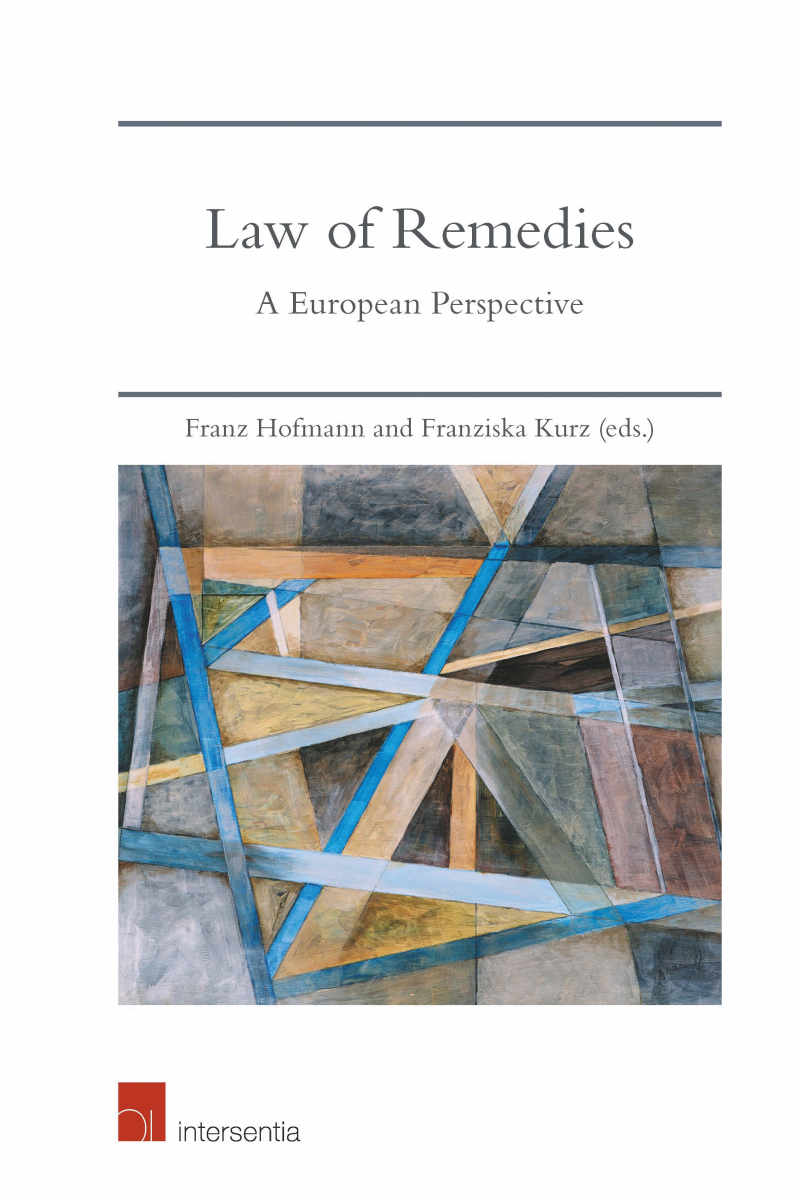 maestro
mastercard
visa
maestro
mastercard
visa

Law of Remedies
A European Perspective

With the increasing importance of the concept of remedies in European private law, this book focuses on remedies as a distinctive and novel field of European legal research. It considers the common law tradition (England and Wales), as well as the civil law viewpoint (on the example of Germany), making the case for a European law of remedies.
It is argued that ‘remedies’ are an enforcement tool influencing the scope of substantive rights. In doing so, the book analyses different mechanisms of enforcement, including the debate on private versus public enforcement as well as the perspective of criminal law. The enforcement of rights is understood as an intradisciplinary task. Remedial law is, however, distinct from procedural law, as well as from substantive law in a narrow sense. Subsequent to defining the scope of a law of remedies, this book analyses several underlying principles and common themes. For example, the proportionality test is presented as fundamental principle in European remedial law. The value gained by identifying common ground is e. g. illustrated with respect to damages in European Private Law. Especially in IP law, in turn, the CJEU rulings and secondary European legislation confirm the importance of proportionate remedies. Moreover, within the law of remedies the function of each remedy can be analysed, and respective interests can be balanced.
Further examples that reveal the importance of a sophisticated enforcement are the CJEU’s recent extension of the concept of communication to the public, the notice-and-take-down-procedure in intermediary liability cases and remedies for non-conformity of digital content or consumers’ remedies in European contract law. In German patent law, the development of grace periods and shareholders´ rights in German corporate law can be analysed from a “remedy” perspective as well.
Overall, this book demonstrates that remedies are more than just an addendum and innovatively presents an emerging research area. As such, it is of great relevance to all lawyers concerned with questions surrounding the enforcement of rights: international academics as well as practitioners.
Professor Franz Hofmann is a Professor of Law at the Friedrich-Alexander-University Erlangen-Nuremberg where he holds the Chair of Private Law, Intellectual Property and Technology Law.
Franziska Kurz is a Research Assistant and PhD candidate at the Chair of Private Law, Intellectual Property and Technology Law at the Friedrich-Alexander-University Erlangen-Nuremberg.
| Type of product | Book |
|---|---|
| Format | Hardback |
| EAN / ISSN | 9781780687858 / 9781780689449 |
| Weight | 675 g |
| Status | Available |
| Number of pages | xviii |
| Access to exercice | No |
| Publisher | Intersentia |
| Language | English |
| Publication Date | Sep 30, 2019 |
| Available on Strada Belgique | No |
| Available on Strada Europe | No |
| Available on Strada Luxembourg | No |
Downloads
- Table of Contents and preliminary matter
Franz Hofmann, Franziska Kurz - THE ISSUE OF REMEDIES
- Introduction to the ‘Law of Remedies’
Franz Hofmann, Franziska Kurz - Remedies in English Private Law – A ‘Stand-Alone’ Research Area?
Paul Davies - Remedies in Private Law from a German Perspective
Jan Hoffmann - Rights and Remedies in Public Law
Andreas Funke - Economics of Remedies: The Perspective of Corporate Law
Klaus Schmolke - MECHANISMS OF ENFORCEMENT
- Private Enforcement versus Public Enforcement
Jens-Uwe Franck - Criminal Enforcement
Dorothea Magnus - FUNCTIONS OF REMEDIES
- Disgorgement of Profits: Distributive and Deterrant Logics
Benjamin Raue - Preventive Liability and System of Sanctions in Tort
Lubos Tichy - UNDERLYING PRINCIPLES
- Common Principles of Damages in EU Private Law?
Christian Heinze - A Manifesto on Proportionality and Copyright Law: ‘Taking Remedies Seriously’
Orit Fischman Afori - Asking Innocent Third Parties for a Remedy: Origins and Trends
Martin Husovec - REMEDIES IN CONTRACT LAW AND INTELLECTUAL PROPERTY
- Remedies in European Contract Law: Themes and Controversies
Christian Twigg-Flesner - The Intersection between Economic Justifications for IP Rights and Cost of Enforcement in the English Courts
Jonathan Moss